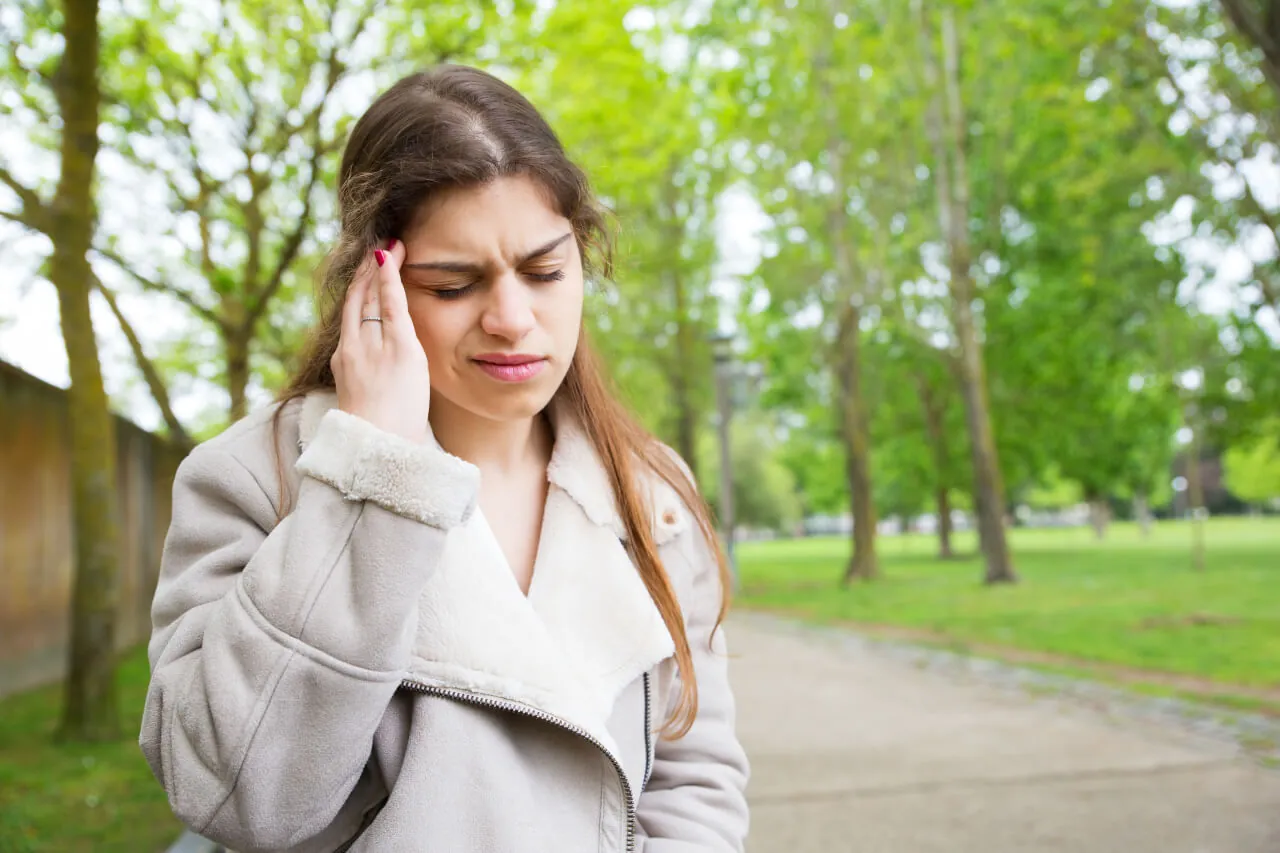When allergies come knocking, they don’t just bring the familiar symptoms of sneezing and itchy eyes.
Surprisingly, these unwelcome guests can extend their reach to create discomfort in unexpected places, including your ears.
The mysterious link between allergies and earaches might leave you wondering how these seemingly unrelated issues are connected.
In this exploration, we’ll delve into the intricate relationship between allergies and ear discomfort, understanding the reasons behind this peculiar association and discovering strategies for finding relief.
Buckle up as we unravel the mysteries where allergies and earaches intersect.
The intricate connection between allergies and earaches goes beyond a mere coincidence.
For those who’ve experienced the discomfort of an earache triggered by allergies, understanding the link becomes paramount.
Allergies represent the immune system’s reaction to usually harmless substances like pollen, dust mites, or pet dander.
When someone allergic encounters these substances, their body triggers the release of chemicals, including histamine, leading to allergic symptoms.
These commonly involve a runny or congested nose, sneezing, and itching or watering of the eyes.
Symptoms
The symptoms of allergy-related earaches may vary, but common indicators include:
- Ear Pain: Allergies can contribute to discomfort or pain in the ears.
- Ear Fullness: Sensation of fullness or pressure in the ears.
- Itching: Itchy ears may be a symptom of allergic reactions.
- Fluid Buildup: Allergies might lead to the accumulation of fluid in the ears.
- Hearing Difficulties: Some individuals may experience temporary hearing difficulties during allergy episodes.
Identifying the specific allergens responsible for your earaches is a crucial step in managing and preventing allergic reactions.
Here are some common allergens known to contribute to ear-related issues:
Pollen: Airborne pollen from trees, grasses, and weeds can trigger allergic reactions.
Dust Mites: Microscopic insects found in household dust can be a common allergen.
Pet Dander: Proteins found in the skin, saliva, and urine of pets, particularly cats and dogs, can cause allergies.
Mold: Mold spores, often found in damp or humid environments, can lead to allergic responses.
Certain Foods: Some individuals may experience earaches as a result of food allergies, such as reactions to nuts, dairy, or gluten.
Environmental Irritants: Exposure to smoke, strong odors, or pollutants may also contribute to allergic symptoms.
Are the Symptoms of Ear Infections in Children Similar to Allergies?
The symptoms of ear infections in children might be confused with allergies.
Children suffering from ear infections may exhibit signs like ear pain, irritability, fever, and difficulty sleeping.
indicators can be similar to common allergy symptoms such as congestion, sneezing, and itching.
Seeking advice from a healthcare professional is crucial to accurately identify the cause and administer suitable treatment, whether for ear infections or allergies.
Treatment
Allergy-related earaches can be a discomforting consequence of the body’s immune response to allergens.
Taking proactive steps to prevent these occurrences is essential for maintaining ear health and overall well-being.
Here’s a detailed guide on preventive measures:
1. Identify Allergens: Understanding the specific allergens triggering your symptoms is the first step.
Common culprits include pollen, dust mites, pet dander, and certain foods.
Consult with an allergist to conduct tests and pinpoint your specific triggers.
2. Allergen Avoidance: Once identified, make a conscious effort to minimize exposure to allergens.
Implement strategies like using air purifiers, regularly cleaning and dusting your living space, and creating pet-free zones within the home.
3. Monitor Pollen Counts: Stay informed about pollen counts in your area, especially during peak seasons.
Limit outdoor activities on high pollen days, keep windows closed, and consider wearing sunglasses to protect your eyes.
4. Maintain Clean Indoor Air: Use high-efficiency particulate air (HEPA) filters in your HVAC system to trap airborne allergens.
Regularly clean air ducts and vents to prevent the circulation of allergens in your home.
5. Personal Hygiene: Adopt good personal hygiene practices to reduce allergen exposure.
Shower and change clothes after spending time outdoors, particularly during high pollen periods.
This helps prevent allergens from lingering on your body and clothes.
6. Nasal Irrigation: Use saline nasal irrigation to clear nasal passages of allergens and reduce congestion.
This can be especially helpful during allergy seasons or when exposed to dusty environments.
7. Allergy-Proof Bedding: Invest in allergen-resistant mattress and pillow covers to create a barrier against dust mites.
Wash bedding regularly in hot water to eliminate allergens.
8. Pet Care: If you have pets, groom them regularly and keep them out of bedrooms to minimize exposure to pet dander.
Consider consulting an allergist to determine if pet allergens are contributing to your symptoms.
9. Eye Protection: Wear sunglasses when outdoors to shield your eyes from pollen and other airborne allergens.
This can help prevent itchy and watery eyes, common symptoms associated with allergy-related earaches.
10. Consult with Healthcare Professionals: If preventive measures alone aren’t providing sufficient relief, seek guidance from healthcare professionals.
Allergists can offer personalized advice and treatment plans, which may include allergy medications or immunotherapy.
Can Allergies Contribute to the Accumulation of Earwax?
While allergies primarily induce inflammation and fluid buildup, they can also indirectly stimulate increased earwax production.
In response to allergy-induced inflammation, the body may generate more wax to shield the ear canal.
This heightened wax production can result in an accumulation, potentially intensifying the sensation of fullness and discomfort in the ear.
It’s crucial to approach ear cleaning with gentleness, avoiding the inadvertent pushing of wax deeper into the ear canal, a practice that can lead to blockage and heightened discomfort.
Prudent ear cleaning involves a delicate and cautious approach to prevent pushing wax deeper into the ear canal—an action often responsible for blockages and increased discomfort.
This blockage can create an environment conducive to bacterial growth, elevating the risk of allergy-induced ear infections.
Additionally, it’s essential to recognize that excessive ear cleaning can strip the ears of natural oils, fostering dryness and irritation.
Seeking guidance from a healthcare provider or allergy specialist is recommended for proper ear care.
They can offer personalized treatment plans and strategies for managing allergies, which may involve over-the-counter medications or prescription ear drops, effectively addressing the discomfort associated with allergy-induced ear concerns.
Conclusion
In conclusion, the intricate connection between allergies and ear pain unveils a multifaceted relationship.
Allergies, typically immune responses to benign substances, can trigger a cascade of reactions within the body, leading to inflammation, fluid buildup, and, consequently, ear pain.
Recognizing the potential for allergies to contribute to ear discomfort is crucial for seeking timely intervention and appropriate management.
Moreover, preventive measures, such as minimizing allergen exposure and practicing proper ear care, play pivotal roles in mitigating the impact of allergies on ear health.
Whether it’s consulting healthcare professionals for accurate diagnosis or adopting preventive strategies, individuals can take proactive steps to alleviate allergy-induced ear pain.
By fostering awareness, seeking expert guidance, and embracing a holistic approach to allergy management, individuals can enhance their overall well-being and enjoy a life free from the burdens of allergy-related ear discomfort.
FAQs
How do allergies contribute to ear pain?
Allergies can induce inflammation and fluid buildup in the ear, leading to increased pressure and discomfort.
This inflammatory response can extend to the ear canal and middle ear, causing pain.
What are the common symptoms of allergy-related ear pain?
Symptoms include ear fullness, itching, a popping sensation, and, in some cases, sharp or dull pain.
Allergies may also exacerbate conditions like Eustachian tube dysfunction, intensifying ear pain.
Can ear infection symptoms be mistaken for allergy-related ear pain?
Yes, ear infection symptoms, such as ear pain, irritability, and trouble sleeping, can overlap with allergy symptoms.
Consulting healthcare professional helps distinguish between the two for accurate diagnosis and treatment.
How can I identify allergens responsible for ear pain?
Identifying allergens may involve allergy testing conducted by healthcare professionals.
Common allergens include pollen, dust mites, pet dander, and certain foods.
Can allergies cause ear wax buildup?
Yes, allergies can indirectly contribute to increased ear wax production as the body produces more wax to protect the ear canal from inflammation.
Proper and gentle ear cleaning is essential to avoid complications.
What preventive measures can help manage allergy-related ear pain?
Preventive measures include minimizing allergen exposure, practicing good ear hygiene, and seeking professional guidance for personalized treatment plans and allergy management strategies.





